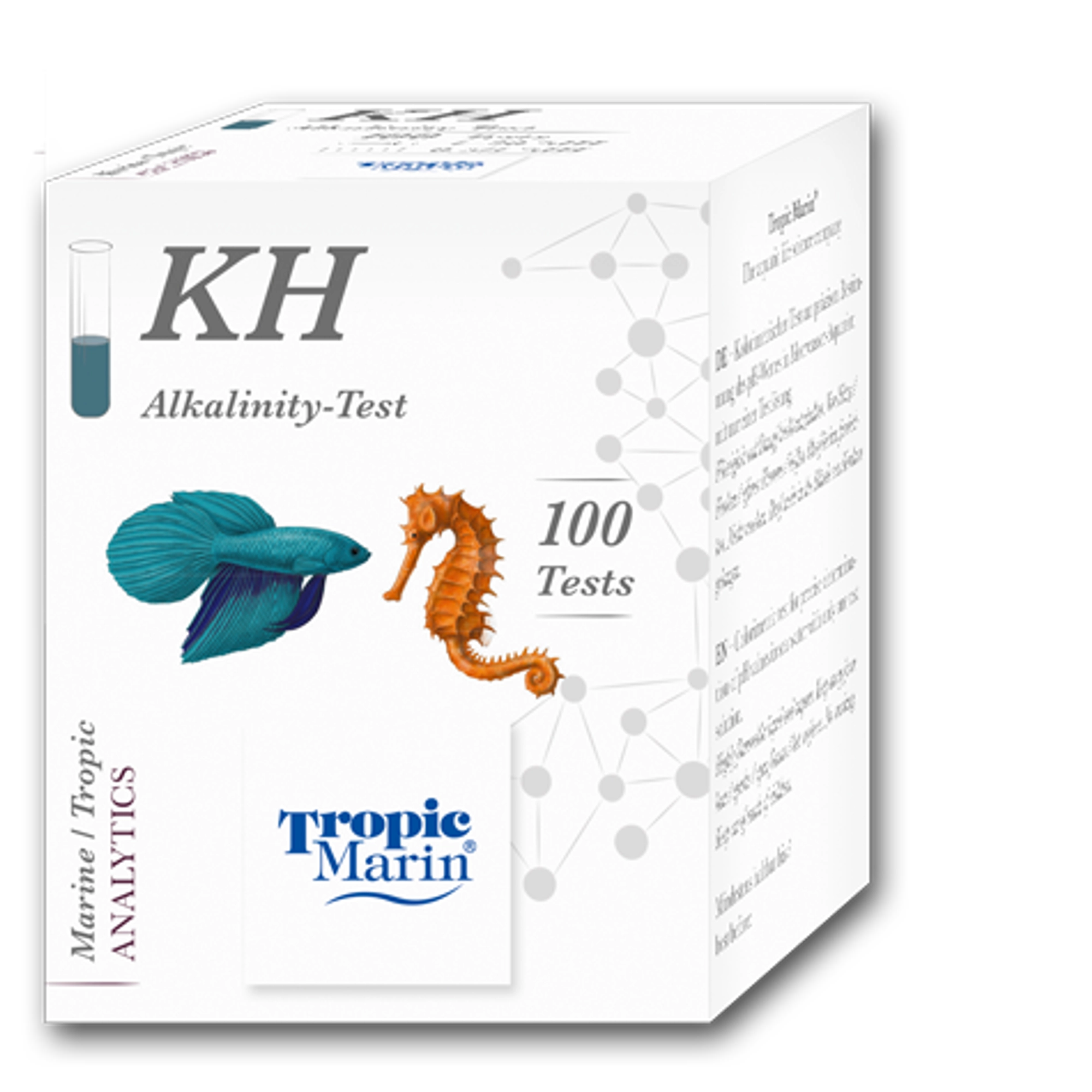

Product Details
#28240
Features:
For determining the alkalinity (KH)
The carbonate hardness (KH) or alkalinity of a water sample characterises the buffering capacity, i.e. the ability to maintain the pH value of the water. There are many terms in water chemistry to describe the buffering capacity with varying definitions. The term “carbonate hardness” is customary in fishkeeping; however, it is the alkalinity which is measured. In this test, both terms are used synonymously. The reading for alkalinity is usually given in degrees of German hardness (°dH).
The alkalinity should be tested in all aquariums with great regularity. If the alkalinity in the aquarium is too low, the pH value can sink (sudden drop in acidity) to a level which is life-threatening for many fish and invertebrates. In reef aquariums, an adequate alkalinity level is essential for strong coral growth. On the other hand, an overly high alkalinity in saltwater tanks can lead to calcium carbonate precipitates and also have a negative impact on coral growth. The alkalinity in saltwater aquariums should range from 6 to 9 °dH. The alkalinity in freshwater aquariums should not fall below 3 °dH.
The Tropic Marin® KH-Test kit makes it possible to quickly determine the alkalinity of your aquarium water by ease of use and high accuracy.
Benefits:
| • | Measurement range: 1 – 20 °dH |
| • | Accuracy: 0.5/ 1 °dH |
| • | For determining the alkalinity in aquaria |
| • | Sufficient for approximately 100 applications |
| • | Measured on the German hardness scale (°dH) |
| • | Conversion Table for other units in the instruction manual included |
TROPIC MARIN KH/ALKALINITY TEST FRESH/SALTWATER
Product Options
Regular
Delivery
Quantity
Aquarium Fishes, Tanks & Supplies From Specialized Aquatic Solutions Bukit Timah


 SG
SG


